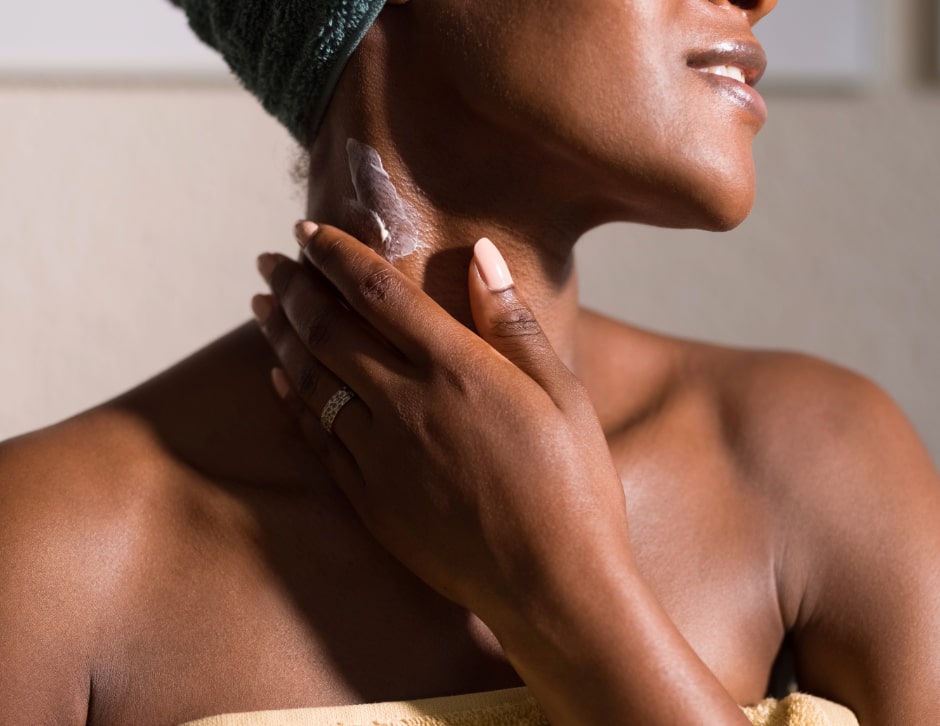
Quick overview of what you’ll learn from this blog post:
- Why does dry, irritated skin form?
- What’s the link between dry skin and aging skin?
- What can be done to reverse dry and aging skin?
Whether you’re beginning a new skincare routine or simply dealing with dry and irritated skin from the winter weather, we’re here to help. Below, we provide a few quick and easy home remedies to help reverse the signs of dry, irritated skin with proper hydration and soothing techniques.
Why do I have dry, irritated skin?
Simply put, dry skin occurs when our skin does not have enough moisture. This may be due to a variety of reasons, such as environmental conditions (e.g. low humidity), frequent bathing (especially if using harsh soaps), a new skincare product (especially containing benzoyl peroxide or salicylic acid), aging (our skin naturally loses its ability to maintain moisture as you age), or even certain medical conditions.
The good news? There are plenty of things you can do to relieve dry, irritated skin and rehydrate your skin from the comfort of home.
What’s the link between dry skin and aging skin?
Dry skin can happen to almost anyone, however, it is something that happens much more often with age. It is often the culmination of sun damage, reduction of natural oils in the skin, and fluctuating hormone levels.
The water/hydration content of our skin’s outermost layer often makes the difference between normal skin and dry skin. This outermost layer contains of dead skin cells that form a protective covering over the living cells beneath it. When the water content of this barrier is low, the layer shrinks in volume and surface area. As it tightens against the layer below, it eventually cracks, producing that flaky, cracking, or scaly appearance you recognize as dry skin.
What can I do to reverse dry and aging skin?
There are plenty of things you can do from the comfort of home to reverse your dry skin. Summarized below is a few of our favorite tips from Harvard Medical School:
- Use a humidifier in the winter and set it to around 60%
- Prioritize your water intake (especially during winter months)
- Limit yourself to one 5-to-10 minute bath or shower daily to avoid stripping away skin’s natural oils
- Use moisturizing soaps, such as Dove, Olay, or Basis or consider a soap-free cleanser, such as Cetaphil or Aquanil
- Apply a moisturizer (e.g. body lotion or even petroleum jelly) immediately after bathing to help seal in moisture while your skin is still damp
- Consider an all-in-one, ultra-hydrating cosmetic product (like DMAE) to combat aging skin rather than using multiple products that may produce harsh side effects, like dry skin
- Use fragrance-free laundry detergent and avoid fabric softeners, which can irritate skin
While these are only a few tips, it’s important to discuss chronic dry skin with your doctor or trusted healthcare professional. For severe dry skin, he/she may prescribe a cream containing lactic acid, urea, or corticosteroids. He/she may also want to run some tests to rule out medical conditions that can cause dry skin, including hypothyroidism, diabetes, lymphoma, kidney disease, liver disease, psoriasis, and atopic dermatitis.
Note: The above statements have not been evaluated by the Food and Drug Administration. This product is not intended to diagnose, treat, cure, or prevent any disease.
